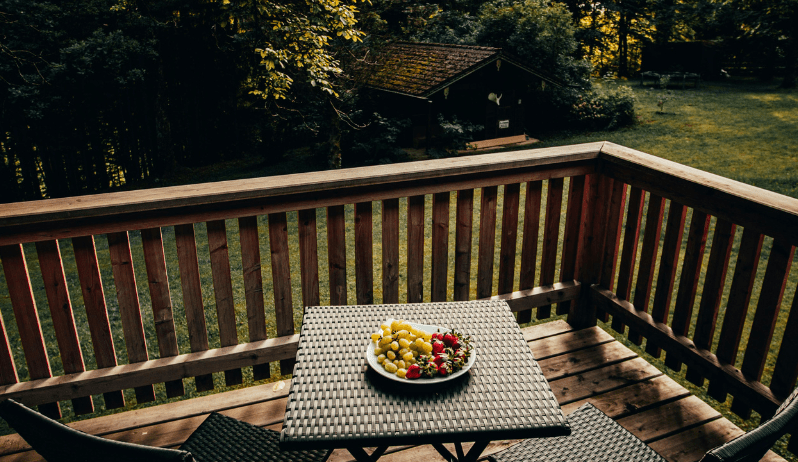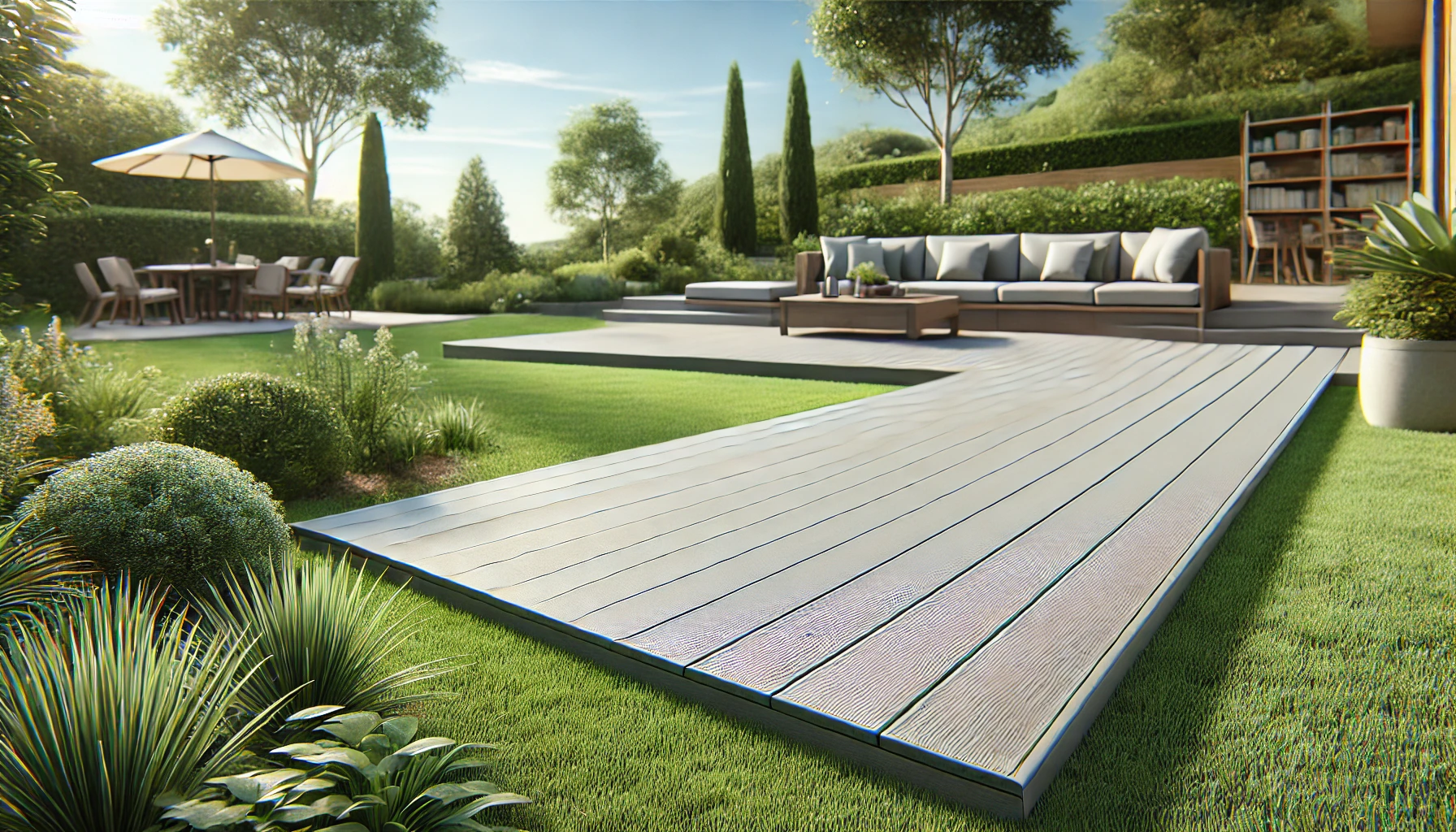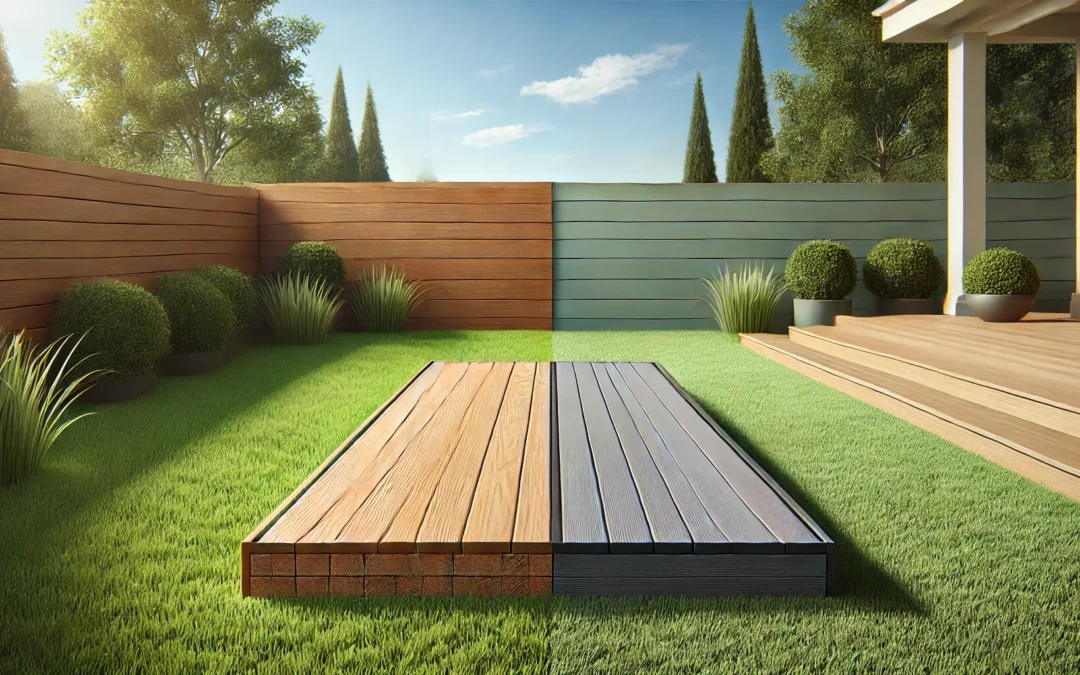Building a deck is one of the best ways to enhance your outdoor living space, especially in Colorado Springs, where the weather is perfect for enjoying the outdoors. A well-built deck can make a big difference if you’re planning to host summer barbecues, relax with a book, or simply enjoy the scenery. However, the first step in building your dream deck is choosing the suitable material. Two popular options are wood and composite. Both have pros and cons regarding durability, cost, and maintenance. Let’s compare these materials to help you decide which is best for your home.
Wood Decking

Many homeowners consider it a classic. Its natural look and feel make it a timeless and attractive option for outdoor spaces.
Pros of Wood Decking
It has a natural charm and versatility that many homeowners find appealing.
- Natural Aesthetic: Wood offers a beautiful, organic texture that many homeowners love. It can be stained or painted to match your home’s exterior, providing a classic, warm look.
- Affordability: This is generally more affordable upfront than composite, making it an excellent choice for those on a budget.
- Customizable: Wood is easy to work with, allowing for creative and custom designs, including unique shapes, trims, and railings.
Cons of Wood Decking
It requires more upkeep and can be less durable despite its appeal.
- High Maintenance: Wood requires regular maintenance, including sanding, staining, and sealing. Wood can warp, crack, or rot over time without this upkeep.
- Vulnerability to Weather: Exposure to moisture, sun, and pests can cause wood to deteriorate faster. It may need frequent inspections and repairs.
- Shorter Lifespan: Even with regular maintenance, wood decks generally have a shorter lifespan compared to composite.
Composite Decking

This has become a low-maintenance and durable alternative to traditional wood. Made from recycled wood fibers and plastic, the composite is designed to last longer and withstand the elements.
Pros of Composite Decking
This has become popular due to its durability and ease of maintenance, making it ideal for busy homeowners.
- Low Maintenance: Composite decks don’t require sanding, staining, or sealing. Occasional washing is all it takes to keep them looking new.
- Durable and Long-Lasting: Composite materials resist fading, staining, mold, and cracking. They can withstand harsh weather conditions, making them ideal for areas like Colorado Springs.
- Eco-Friendly: Many options are made from recycled materials, making them a more sustainable choice.
- Variety of Colors and Textures: It is available in various colors and textures, including styles that mimic the look of natural wood.
Cons of Composite Decking
Despite its benefits, composite decking has some downsides that are worth considering.
- Higher Initial Cost: This generally costs more upfront than wood. However, the reduced maintenance costs may make it a better long-term investment.
- Heat Retention: Composite materials can get quite hot under direct sunlight, which can be uncomfortable if you plan to spend a lot of time barefoot on the deck.
- Less Natural Look: Some homeowners feel that despite the improvements in design, composite decking doesn’t replicate natural wood’s authentic feel and texture.
Cost Comparison: Wood vs. Composite
Wood decking generally has a lower initial cost but requires ongoing maintenance expenses. Composite decking, while more expensive upfront, reduces long-term costs because it doesn’t need as much upkeep. Composite can be a worthwhile investment for homeowners looking for a long-lasting, hassle-free option.
Durability and Lifespan
Wood decks can last between 10-15 years, depending on the type of wood and the level of maintenance. Composite decks, on the other hand, can last 25-30 years or more with minimal upkeep. This durability makes composite a strong contender for those who want a long-term solution.
Environmental Impact
Choosing between wood and composite also involves considering their environmental impacts. While wood is a renewable resource, improper harvesting can contribute to deforestation. Composite materials are often made from recycled products, making them an eco-friendly choice. However, they are not biodegradable, which could concern some.
Conclusion
Ultimately, the decision between wood and composite decking comes from your budget, lifestyle, and aesthetic preferences. Wood decking can be a fantastic, cost-effective option if you enjoy the natural look of wood and don’t mind the regular upkeep. However, composite decking might be better if you want a durable, low-maintenance solution that withstands harsh weather.
At Affordable Services, we’re here to help you make the best choices for your outdoor space. Whether you need expert advice on decking materials or assistance with seasonal clean-up services, our team is dedicated to providing reliable, high-quality solutions. Contact us to learn how we can help you with your next home project.






